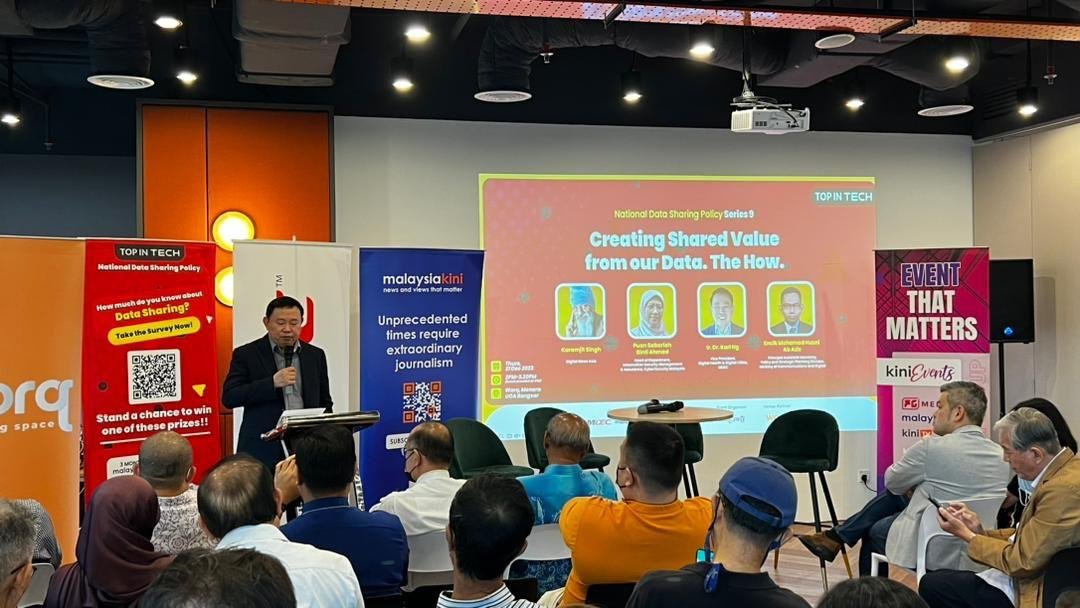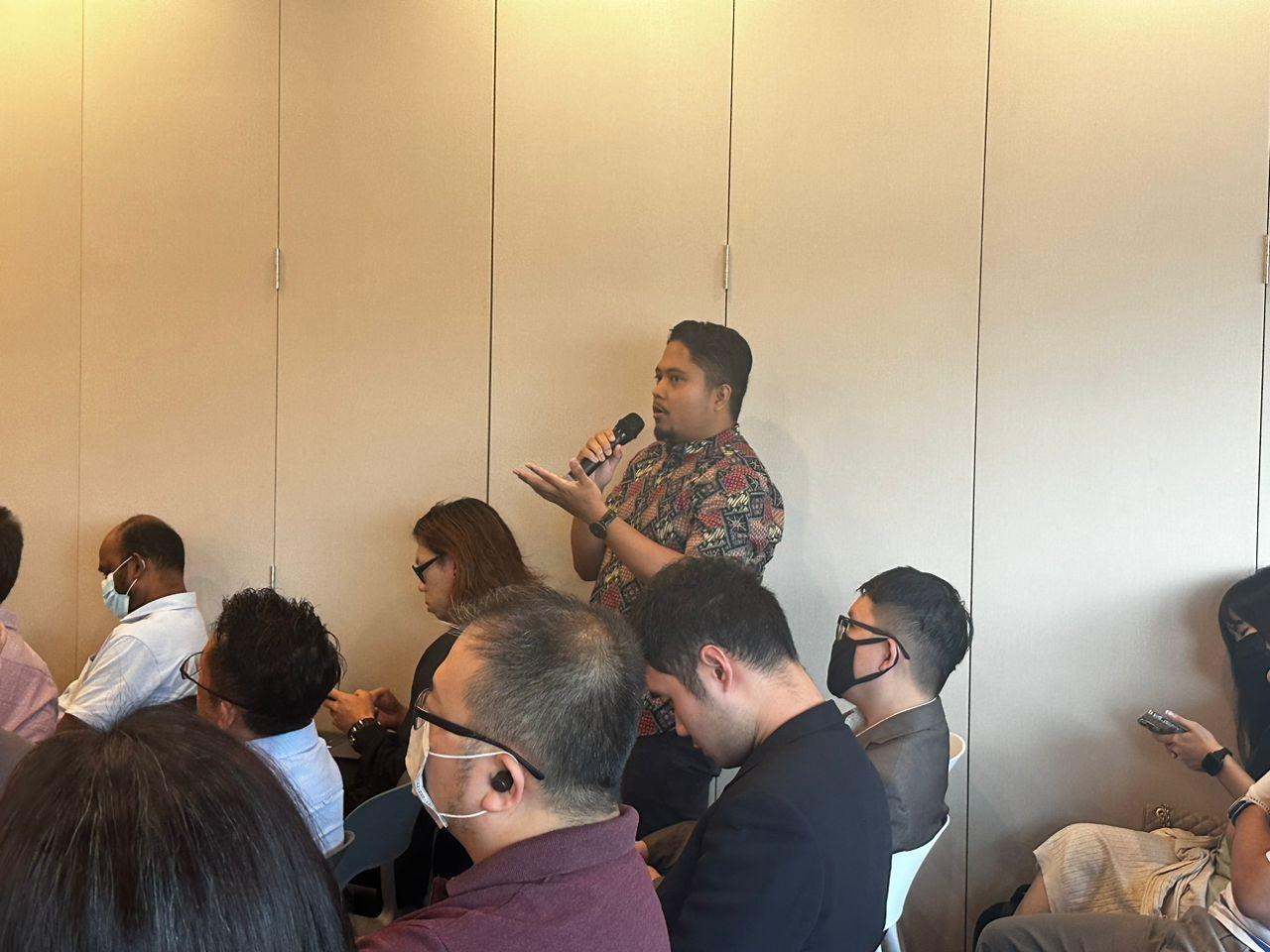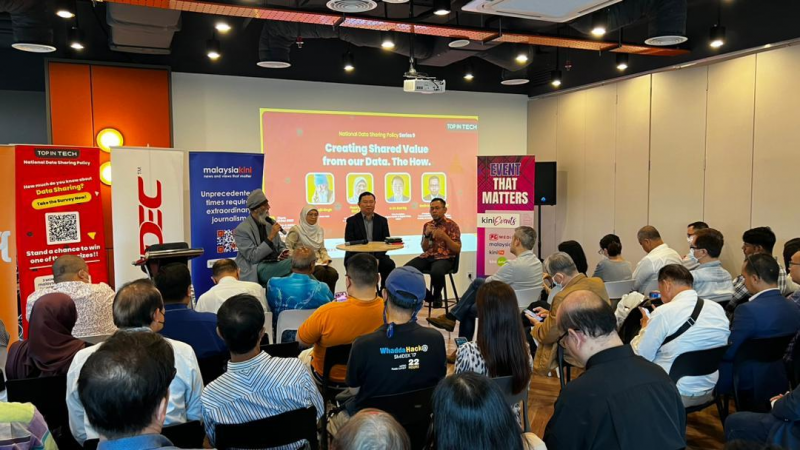In 2022, the Government launched the National Data Sharing Policy (NDSP), a visionary policy that transcends boundaries, encompassing the public sector, the private sector, and the Rakyat. This policy holds the key to fostering a data sharing environment that is not only conducive but transformative.
To raise awareness and gather valuable feedback, we have initiated the NDSP Series – a collaborative effort by the Malaysia Digital Economy Corporation (MDEC), Malaysiakini, and Digital News Asia (DNA), with the support of the Ministry of Digital (MD).
This series aims to educate the public about the benefits and challenges of data sharing while gathering opinions and suggestions to enhance the policy and its implementation. Your active participation in these discussions will be instrumental in shaping the data sharing practices in Malaysia, leading us toward a secure and dynamic digital world.
The final episode of the National Data Sharing Policy, Karamjit Singh, CEO of DNA, engaged in a discussion with Puan Sabariah Binti Ahmad (Head of Department, Information Security Management & Assurance, CyberSecurity Malaysia), Ir. Dr. Karl Ng (Vice President, Digital Health & Digital Cities, MDEC) and Encik Mohamad Husni Ab Aziz (Principal Assistant Secretary, Policy and Strategic Planning Division, Ministry of Communications and Digital)
Mitigating Data Misuse: To Safeguarding Privacy and Ensuring Competency in Data Management
The discussion delved into the intricate layers of how organisations can harness the power of data collaboration to drive innovation, foster connectivity, and propel their objectives forward. During the event, Karamjit Singh initiated the discussion by directing the first audience question to Puan Sabariah, focusing on the prevention of data abuse and misuse. She emphasised the need to thoroughly assess the inherent risks associated with each stage of data processing. Puan Sabariah highlighted the potential vulnerabilities affecting not just the individuals managing and handling data, but also the technologies employed, such as smart devices and data processing tools. She underscored the significance of employing various techniques like data masking for privacy preservation, especially when data is utilised for statistical purposes. In the end, she stressed the criticality of awareness and the necessity for competent individuals overseeing data management, recognising that human error could inadvertently lead to misuse. Ultimately, she concluded that safeguarding against data misuse extends beyond technology, encompassing robust processes, governance, and the expertise of the involved individuals.

Dr. Karl compared managing data to handling money, saying we need good rules and responsible use. He highlighted the importance of proper governance, processes, policies, and technology to guide data safely. He said, “Misusing data should have consequences, similar to misusing money.”. But Karamjit added a twist, pointing out that in Malaysia, some people don't think data protection is a big deal, comparing it to an overlooked gadget. He clarified that even if politicians don't talk much about it, business owners should take data seriously because they could be responsible for any issues. This idea challenged the misconception that data protection isn't important.

Empowering the Digital Landscape: Insights into Personal Data Protection Act (PDPA), Government Initiatives, and Technological Advancements
The next question was directed to Encik Husni, who provided a concise overview of the PDPA. Describing it as a potential game changer, he emphasised its role in propelling the digital economy forward. The discussion extended to the broader context of government initiatives, including the development of Freedom of Information and the impending National Cyber Security Act. Encik Husni underscored the importance of a technical aspect to enhance data governance, recognising the need for robust measures to secure and manage information in the evolving digital landscape. This glimpse into the regulatory landscape and technological advancements suggests a comprehensive approach to driving the digital agenda while prioritising data protection and cybersecurity.
Puan Sabariah contributed to the discussion by focusing the attention on the importance of strategic planning in data management. She highlighted the need for thorough risk assessment and vulnerability identification, particularly in the context of technology processes and data sharing across different systems. Puan Sabariah underscored the significance of scrutinising potential loopholes in the integration of data between systems to reduce vulnerabilities. She said,“Implementing countermeasures emerged as a key strategy to minimise risks effectively”. Addressing legal considerations, she pointed out the relevance of the PDPA, focusing on the obligation to respond in case of data breaches involving personal information. Additionally, Puan Sabariah pointed up the critical role of communication channels, both internal and external, as a pivotal component in the overall effectiveness of managing cyber incidents. This holistic approach reinforces the notion that comprehensive planning, risk assessment, legal compliance, and effective communication are integral components in ensuring robust data management and cybersecurity practices.
Watch the full webinar HERE - National Data Sharing Policy Series - Creating Shared Value From Our Data. The How.
This article is provided by KiniEvents





